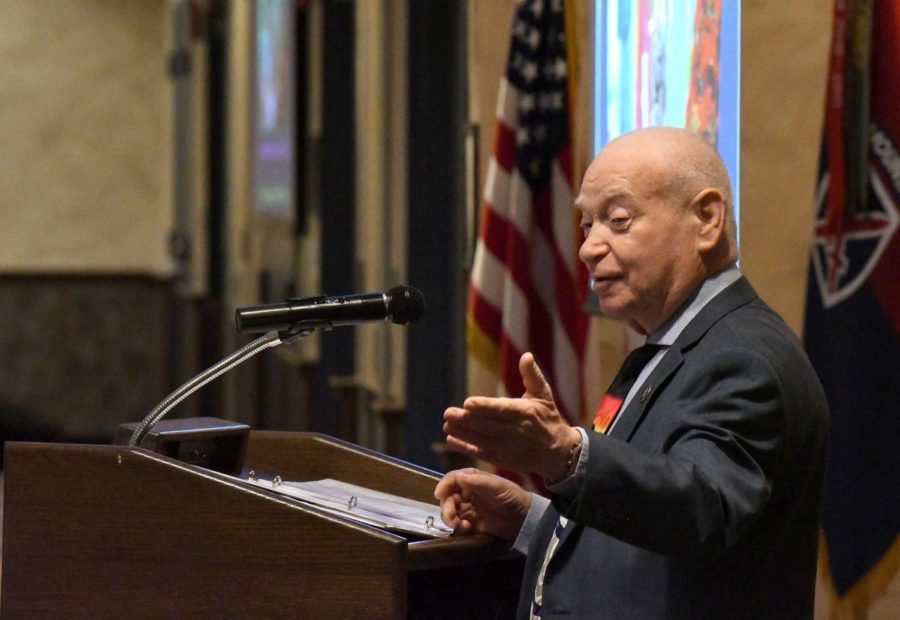Holocaust survivor speaks to motivate the next generation
April 18, 2023

When Sami Steigmann was one-and-a-half years old, his family was deported from modern-day Ukraine and forced into a Nazi labor camp.
“I was subjected to Nazi medical experimentation. I almost died of starvation, but a German woman saved my life,” Steigmann said.
Now, Steigmann tours internationally, educating people about the Holocaust and motivating people to better themselves and the world around them.
Steigmann came to Tulane University on April 18 to discuss his past and his hopes for the next generation. An expected crowd of 75 students blossomed into hundreds, putting Steigmann on a bigger stage. But instead of taking a seat, Steigmann spent an hour pacing the aisles, interacting with students, bearing a colorful tie and pins representing the Israeli, American and rainbow flags.
“I also want to empower you to become upstanders,” Steigmann said.
Steigmann identifies as an optimist despite his trauma from the Holocaust and the trauma he lives with today. “I have suffered all my life, and you will never see it on my face. I will suffer for the rest of my life, every single second,” he said.
Neither he nor his parents knew what the Nazi medical experiments did to him as a child, but he still experiences the pain. “I never know when it starts. I never know how long it will be. I never know where it will go,” Steigmann said. “On a scale of one to 10, every single second on average, my pain is three to four.”
Steigmann and his parents survived the Holocaust. “There is no rhyme or reason why somebody lived, somebody died,” he said. It all comes down to luck.
“I do not want you to feel sorry for me,” Steigmann said. “I live under the poverty line. The most expensive city in the country in Manhattan; my monthly income is $1,540, and as you can see, I still smile. I became homeless, because people that I trusted with my life betrayed me.”
“I want you to learn from me never to give up,” Steigmann said.
Steigmann’s story is meant for all, not just Jewish people. “The Holocaust is not a Jewish issue, it’s a humanitarian issue,” he said. “Yes, six million [deaths] were Jews, but five million were not Jewish people.”
“What does six million mean?” Steigmann asked some audience members who contemplated the question.
“I’ll tell you what that means to me: nothing. It’s a number. I cannot relate to it,” he said. “Let’s bring it to a common denominator. If you will be on your feet in silence for one minute or every victim of the Holocaust, six million minutes, you will be on your feet and silent for 11-and-a-half years.”
Part of Steigmann’s mission as a motivational speaker is to educate young people on the Holocaust and the current state of Jewish discrimination today.
“I do not want you to use the word antisemitism,” Steigmann said. According to Britannica, a “semite” is defined as any person who speaks a Semitic language, a language group from parts of western Asia and Africa. The group includes many nationalities besides Jewish people.
“I trained myself to use the word Jew-hater, or anti-Jew, and not antisemitism,” Steigmann said.
Steigmann lives life through the Hebrew word “emet,” meaning truth. “My mission in life is an acronym of that word,” he said: Educate, Motivate, Empower, Tolerance.
Steigmann believes that the United States has an issue with truth. “In life, there are three truths: your truth, my truth, and the truth,” he said. “So do me a favor: do the research.”
“I believe in you and I believe that you will make this world a better one, a kinder one and with less hate,” Steigmann said to the students. “You are my hope, you are my future.”






















Leave a Comment